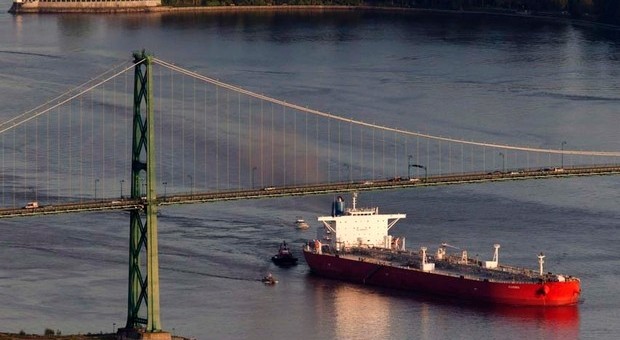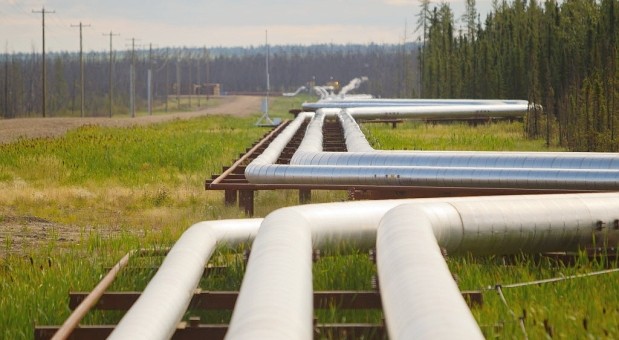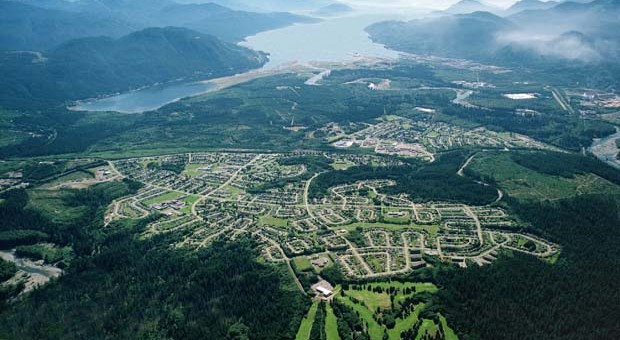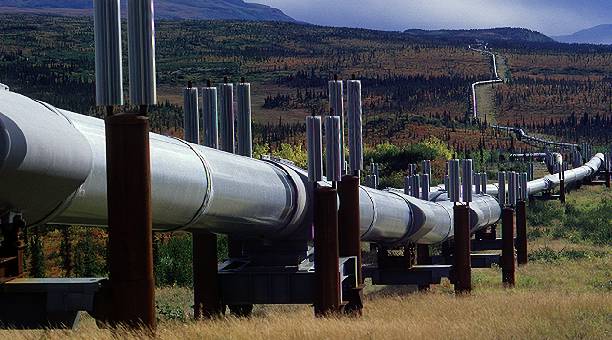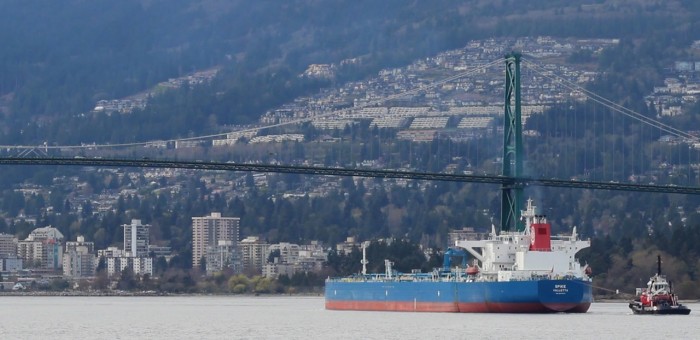Pipelines
Kinder Morgan Responses Unacceptable
Media Statement: July 3rd, 2014
Andrew Weaver: Kinder Morgan Responses Unacceptable
For Immediate Release
Victoria B.C. – Today, Andrew Weaver MLA for Oak Bay-Gordon Head and Deputy Leader of the B.C. Green Party has submitted a motion to the National Energy Board, asking them to compel Trans Mountain to provide full and adequate responses to questions that he submitted as an intervenor in the Trans Mountain Hearing Process. Many of Trans Mountain’s answers to his information requests were “incomplete” and “unacceptable”.
As a part of the National Energy Board hearing process on Kinder Morgan’s proposed Trans Mountain pipeline project, Dr. Weaver submitted nearly 500 questions to the company. Dr. Weaver’s questions focused on the risk and impact of an oil spill, the scientific underpinning of its oceanographic analysis, and on the extent to which people on southern Vancouver Island were consulted. Trans Mountain, a fully own subsidiary of Kinder Morgan Canada, recently submitted its answers to Dr. Weaver’s questions.
“Many of the answers I received are simply unacceptable,” says Andrew Weaver. “They are refusing to consider any oil spill larger than a small fraction of a tankers cargo, and basing their oil spill analysis on a response capacity that simply doesn’t exist. The lack of substantive response shows a disregard for the essential role that intervenors play in the hearing process.”
Collectively over 10,000 questions were submitted to Trans Mountain as a part of the first stage of information requests. With the National Energy Board’s ruling to exclude oral cross-examination from the hearing process, intervenors will only have one more opportunity to submit follow-up questions to the company.
Many intervenors have argued that the decision to exclude oral cross-examination has severely constrained their ability to hold Trans Mountain to account on its evidence. These concerns will ultimately be put to the test in the coming weeks when the Board makes its ruling on the adequacy of Trans Mountain’s answers. Intervenors have until July 4th to submit motions to the NEB requesting a ruling be made.
“Given the massive outpouring of opposition to the Northern gateway pipeline and the serious concerns that have been raised about heavy oil spills, it is hard to believe that Kinder Morgan wouldn’t be doing everything possible to assuage the concerns of intervenors and all British Columbians” said Weaver.
Submission to National Energy Board from Andrew Weaver – download here.
Media Contact
Mat Wright – Press Secretary, Andrew Weaver MLA
mat.wright@leg.bc.ca
1 250 216 3382
BC Government Seeks Public Feedback on Oil Spill Preparedness
On April 25, 2014 the Ministry of Environment released an intentions paper on Land Based Spill Preparedness and Response in British Columbia. The Ministry is now seeking public comment on the paper, which outlines intentions to strengthen British Columbia’s land based oil spill preparedness and response regime and describes the progress that has been made so far.
The public has until July 25, 2014 to submit their feedback on the paper. Comments can be submitted by email, letter, or by completing an electronic response form. To read the Condition 3 intentions paper, please click here. To submit your feedback on the paper, please click here.
Federal decision on Northern Gateway an affront to democracy in BC
On June 17th the Federal Government approved Enbridge’s controversial Northern Gateway Pipeline. The pipeline will see 525,000 barrels of the heavy oil transported from the Alberta tar sands to the BC coast each day, for transport by tanker to foreign refineries.
With its decision, the Federal Government is bulldozing this pipeline through the backyards of British Columbians. Time and time again, First Nations along the pipeline route have made it clear that they will not accept the Northern Gateway pipeline on their traditional territory. The District of Kitimat rejected the project in a recent referendum. And poll after poll has shown an overwhelming majority of British Columbians do not believe the project should move forward.
The Federal Government’s failure to respect the will of British Columbians is particularly ironic. In 1980 when Trudeau introduced the National Energy Program, Albertans were outraged. They argued that it was utterly inappropriate for the federal government to interfere with their energy policy as it was deemed to be within provincial jurisdiction. Have we not learned anything from history?
First Nations along the pipeline route are among those who would be most impacted by its construction. Yet they have been largely ignored throughout much of this process. In fact, a Stephen Harper appointed special envoy on aboriginal and energy issues recently issued a report that showed the federal government’s approach to engagement with First Nations was inadequate.
In an address earlier this month to a conference for treaty negotiators, industry and government, the appointee Mr. Doug Eyford stated:
“I was struck that some of the communities that are today threatening judicial proceedings and civil disobedience were at one time requesting meetings with federal officials and making what I believe, in retrospect, were feasible proposals to address the environmental and other issues associated with the project. … Regrettably, there was no uptake.”
We owe our First Nations a debt of gratitude as they commence legal action to have their constitutional rights enforced. First Nations are using their resources — resources that could be used towards the betterment of their communities — to defend the interests of all British Columbians in court. This shouldn’t need to be the case. It is the BC Government that should be stepping up to defend the rights of all British Columbians. The spotlight is now on Premier Clark.
The BC Government has stated it has the power to stop the Northern Gateway pipeline through the 60 required provincial permits. Yet so far Premier Clark and her government have sat largely on the sidelines, neglecting to make any concrete commitments one way or the other.
The BC Government has stated that for any heavy oil pipeline to proceed, it must meet five conditions. Immediately after the Northern Gateway decision, Clark’s government made it very clear that these conditions have not yet been met.
Yet even if their 5 conditions are eventually met, the fact is that on their own, they are not enough. The heavy oil that is to be transported on tankers along our coast is called diluted bitumen, or dilbit. A recent federal study has clearly shown that in the presence of suspended sediments, of which there are no shortage in our coastal waters, dilbit will sink when spilled in the ocean, making recovery difficult, if not impossible, and the damages potentially catastrophic.
We do not have the science or the capacity to deal with a dilbit spill. And none of Premier Clark’s 5 conditions address this. In fact, In its comprehensive 2013 submission to the Northern Gateway Joint Review Panel the British Columbia Government was very clear: “the Province is not able to support approval of the project”.
This is why I, together with the BC Green Party, have called for a moratorium on tankers transporting dilbit, adding this as a sixth condition on top of B.C. Liberal’s existing five conditions.
With today’s decision to approve the Enbridge pipeline, the deadline for meeting the 5 BC Liberal conditions has passed. It is time for Premier Clark and her government to stand up and reflect the wishes of British Columbians by unequivocally rejecting the federal decision to proceed with the Northern gateway project.
With a federal ‘Yes’ on Northern Gateway, it’s time for the provincial government to say ‘No’
Media Statement: June 17, 2014
With a federal ‘Yes’ on Northern Gateway, it’s time for the provincial government to say ‘No’
For Immediate Release
Victoria B.C. – The B.C. Green Party is calling the Federal Cabinet decision that approved Enbridge’s
controversial Northern Gateway pipeline deeply troubling for democracy. The majority of British
Columbians have consistently been opposed to the pipeline, as was reiterated with the latest Nanos poll,
showing 67% opposition.
“The Federal Government continues to ignore the will of British Columbians,” says Andrew Weaver, MLA
for Oak Bay-Gordon Head and Deputy Leader of the B.C. Green Party. “The fact is, Kitimat is opposed to
this project. First Nations are opposed to it. British Columbians are opposed to it. It’s time for the
Provincial Government to draw a line in the sand, and reject the Northern Gateway project.”
With the failure of the Federal Government to represent the will of British Columbians, the spotlight is
now on Premier Clark.
“The Federal Government is steamrolling this pipeline through the backyards of British Columbians.”
says B.C. Green Party leader Adam Olsen. “Premier Clark can stop this pipeline. I am calling on her to
do that today.”
Yesterday, Premier Clark reiterated that any heavy oil pipeline needs to meet her government’s five
conditions, concluding that “Enbridge hasn’t met them yet.”
One of those conditions is a world-leading marine spill response regime. This is complicated by the fact
that the tankers would be carrying diluted bitumen, a heavy oil that has been shown to sink when spilled
in the ocean, making recovery more difficult.
The B.C. Green Party is the only party with a clear stance calling for a moratorium on tankers
transporting this heavy oil, adding this as a sixth condition on top of B.C. Liberal’s existing five conditions.
The BC government has stated that they have the power to stop the Enbridge pipeline through the 60
required provincial government permits. Yet so far the government has largely sat on the sidelines,
neglecting to make any concrete commitments one way or the other.
“This is no time for political dances and electoral calculations. This is our coast they are putting at risk.
British Columbians expect Northern Gateway to be rejected by their provincial government, and we
expect it today,” added Adam Olsen
Media Contact – Andrew Weaver MLA
Mat Wright – Press Secretary
1 250 216 3382
mat.wright@leg.bc.ca
Media Contact – B.C. Green Party / Adam Olsen
Stefan Jonsson – Director of Communications
1 250 514 0288
stefan.jonsson@greenparty.bc.ca
The bottom line is this. It’s our coast, and we deserve better.
The National Energy Board review process for Kinder Morgan’s Trans Mountain pipeline is now well-underway.
If the project is approved, we would see an increase from 60 to more than 400 heavy oil tankers leaving Vancouver harbour each year. Those tankers would then pass around the tip of southern Vancouver Island—an area identified by the federal Tanker Safety Expert Panel as being one of the most high risk areas in Canada for an oil spill.
The thought of this enormous increase in tanker traffic alarms me, and I know I’m not alone. With more oil tankers comes more risk of an oil spill—one that could destroy our pristine coastline and devastate our local communities. The whole idea undermines Vancouver’s award-winning efforts to become the world’s greenest city by 2020.
That’s why I applied to be a full participant in the Kinder Morgan hearings. My constituents, and British Columbians across our province, will be affected by this pipeline and they deserve a voice in the process.
Last week I joined dozens of other participants in submitting questions to Kinder Morgan on their application. With a 15,000 page application to review, and only one month to submit questions, I chose to start by analyzing Kinder Morgan’s evidence around oil spills: How likely are they? What impact will they have? And how effectively can we actually clean them up? I also asked about whether my constituents, and others in the coastal communities, were properly consulted, given the impact this project could have on their health and livelihoods.
If the number of questions a participant submits is any indicator, I had nearly 500 questions on oil spills and consultation alone. Collectively, participants submitted thousands of questions on these and other topics as we try to better understand what this project will really mean for British Columbians.
Here are just a few examples of the areas I asked about:
1) Federal studies clearly show that, unlike most other crude oils, the diluted bitumen Kinder Morgan will be transporting through its pipeline is so heavy that when it mixes with suspended particles in the ocean, it sinks. If there is one thing we have plenty of in our coastal waters, it is suspended sediments. Unfortunately, Kinder Morgan’s oil spill response is based entirely on the faulty assumption that the spilled oil would float. How are they going to respond when it actually sinks?
2) When assessing the impact of an oil spill and their ability to clean it up, Kinder Morgan based their projections on near-perfect conditions, including: 20 hours of daylight, pristine weather with only minimal waves, the availability of all staff and equipment to respond, and of course, floating oil. They also assumed that they would have twice the response capacity available to them as currently exists. Despite these ideal circumstances, they only predicted that 45% of the oil would be recovered. Even then, they acknowledge that their model isn’t consistent with historical averages (generally only 5-15% of spilled oil is ever recovered). I asked Kinder Morgan to redo their model analysis to offer realistic projections, based on credible assumptions, so that we can know what to really expect.
3) A typical heavy oil tanker will carry more than 100,000 tonnes of oil. Yet in their analyses, Kinder Morgan assumed a worst-case scenario that only 16,500 tonnes would ever “credibly” spill at a time. That may be true according to Kinder Morgan’s calculations, but credible risk analyses consider the full range of scenarios, including one where the ship sinks and all of its oil is released. How can we know the full risk that comes with these tankers, if the worst-case scenario is excluded from consideration?
Ultimately, in applying to build their pipeline, Kinder Morgan is applying for a social license from British Columbians. Earning that social license begins with providing credible evidence that can stand up to thorough cross-examination.
Kinder Morgan has already advocated excluding oral cross-examination from the hearing process. Those who followed the Northern Gateway hearings know just how significant this change is.
What the above points suggest is that Kinder Morgan’s submitted evidence is far from complete. After reading countless pages of documents it’s pretty clear to me that neither Kinder Morgan, the scientific community, nor the federal or provincial governments have even a cursory idea of what would happen in the case of a catastrophic diluted bitumen spill in our coastal waters.
The bottom line is this. It’s our coast, and we deserve better.

